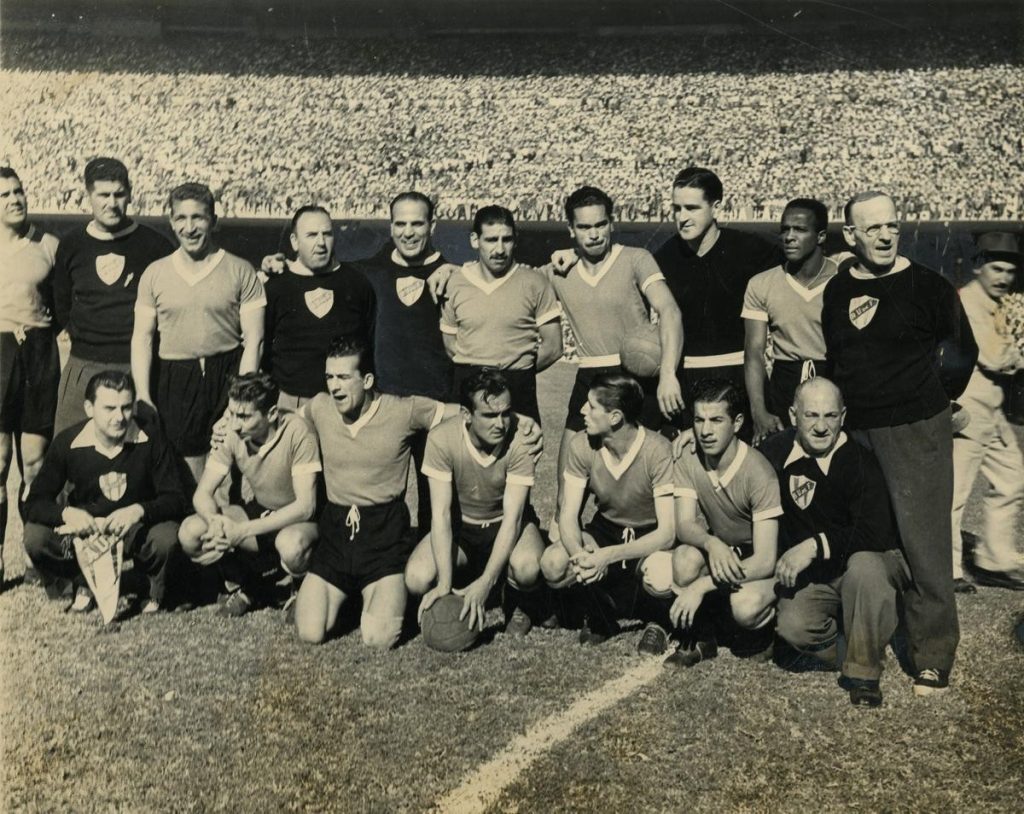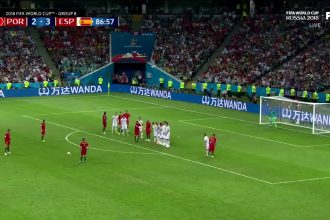The 1950 FIFA World Cup stands as a remarkable chapter in football history, forever etched in the minds of football enthusiasts. Hosted by Brazil, the tournament witnessed unexpected twists, heart-stopping moments, and an unforgettable finale that captivated the world. In this article, we delve into the story of the 1950 World Cup, exploring the tournament’s significance, notable matches, and its lasting impact on the football landscape.
In the aftermath of World War II, the international football community sought to revive the spirit of the game. Brazil was chosen as the host nation, eagerly embracing the opportunity to showcase its passion for football to the world. The stage was set for a tournament that would leave an indelible mark on the sport.
This was the only tournament not decided by a one-match final. It was also the inaugural tournament where the trophy was referred to as the Jules Rimet Cup, to mark the 25th anniversary of Jules Rimet’s presidency of FIFA.
The 1950 World Cup followed a unique format. Instead of a traditional knockout tournament, it employed a round-robin system, where four teams competed in group stages, with the winners of each group advancing to the final group stage. This innovative approach added an extra layer of excitement and unpredictability to the competition.
As the tournament unfolded, it became clear that conventional football wisdom would be challenged. Mighty teams like England, Italy, and Uruguay were considered favorites, while Brazil carried the weight of a nation’s expectations on their shoulders.
A combined Great Britain team had recently beaten the rest of Europe 6–1 in an exhibition match and England went into the competition as one of the favorites; however, they went crashing out after a shock 1–0 defeat by the United States and a 1–0 defeat by Spain. Italy, the defending champions, lost their unbeaten record at the World Cup finals with a 3–2 defeat by Sweden in its opening match and failed to progress to the second round.
The final match in Group 1 between Switzerland and Mexico was the second time a national team did not play in their own kit, the first being the 1934 match between Austria and Germany when both teams arrived with white kits, and the Austrians borrowed blue kits from club side Napoli. Both teams arrived with only their red kits, so the Brazilian Football Confederation tossed a coin, with Mexico thus earning the right to play in their own kit, a right they waived as a friendly gesture, allowing the Swiss to wear their own kit while Mexico changed. The local team that lent their shirts was Esporte Clube Cruzeiro from Porto Alegre. The shirts had vertical blue and white stripes.
England vs. the United States – The Miracle on Grass:
In another beautiful encounter, a plucky United States team faced England in the group stage. Considered underdogs, the American players defied expectations by defeating the British side 1-0, causing one of the greatest upsets in World Cup history.

Brazil vs. Uruguay – The Maracanazo:
The defining match of the tournament came in the final group stage, where Brazil faced Uruguay at the iconic Maracanã Stadium in Rio de Janeiro. With a capacity crowd of nearly 200,000 spectators, Brazil only needed a draw to secure the title. However, against all odds, Uruguay triumphed with a stunning 2-1 victory, shattering the dreams of an entire nation and forever cementing the match as the infamous “Maracanazo.”


The 1950 World Cup left an enduring legacy on the football landscape. It showcased the power of the underdog and the unpredictable nature of the sport. The tournament also served as a catalyst for the growth and development of football in Brazil, inspiring a footballing culture that would produce some of the game’s most incredible talents and iconic moments in the years to come.
Teams:
Bolivia, Brazil, Chile, England, Italy, Mexico, Paraguay, Spain, Sweden, Switzerland, The United States, Uruguay, Yugoslavia
The 1950 FIFA World Cup remains a testament to the unpredictable nature of football and the enduring spirit of the game. It taught us that no team is invincible and that even the underdogs can rise to the occasion. The tournament’s legacy lives on in the hearts of football fans worldwide, serving as a reminder of the magic that can unfold on the grandest stage of them all.





